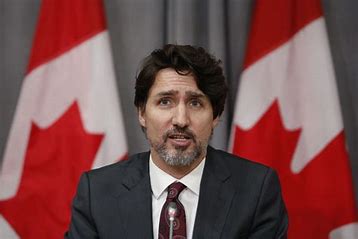Canada with Trudeau as PM has been moving within the orbit of the Sino-Wahhabi lobby.
When he was Prime Minister of Canada, Pierre Trudeau made sure his country was among the first western countries to recognize the PRC in 1970. On October 11, 1973, he made a state visit to the PRC, accompanied by his wife Margaret, whom he divorced in 1984, and eldest son Justin, now Prime Minister of Canada. Pierre Trudeau met Chairman Mao on October 13, calling him “among the greatest Heads of State of the 20th century”. Almost a decade before President Richard Nixon opened the doors to US cooperation and began boosting the Chinese economy, Pierre Trudeau had, through removal of barriers, begun a policy which was essential for setting the PRC on the road to becoming an economic superpower. By the 21st century, China was strong enough to pose a challenge to the geopolitical primacy of the US, a primacy that had lasted throughout most of the 20th century. The course of replacing the US as the primary power was put on steroids by Xi Jinping from 2012, who was not interested in an Asian Century, but an exclusively Chinese one laden with CCP with Xi Jinping Thought. While the US was doling out one-sided concessions to China, what Nixon and other US Presidents did not factor in was the fact that from the 1950s onwards, the PRC under Mao had been hostile to the USSR, and by the 1960s was as committed to its meltdown as the US. Even without the bounty showered on it by the US and its Atlantic Alliance, the PRC would have cooperated with them in seeking the collapse of the USSR. Partly due to policy errors by some leaders of India, since the 1950s, western countries treated India as what the country never was, a satellite of the USSR. In the 1990s, President Clinton fast-tracked industrial and technology outflow to the PRC, in effect beginning the process of hollowing out US industry. Along the way, Clinton adopted a policy of creating an existential threat to US dominance in technology. This was a policy that began to be walked back from by more and more western nations only since the close of the 2010s. A policy of working to delink Russia from China so that Moscow does to Beijing during Cold War 2.0 what China did to Russia during Cold War 1.0 makes sense. However, apart from a few politicians such as J.D. Vance, events in Ukraine since 2014 indicate that almost all western leaders frame policy as though the world was still in the era of the Cold War with the USSR. Such a line of thought, which has been adopted by many western leaders, is what Beijing seeks, which is a continuation of hostile western focus on Moscow rather than on Beijing.
Prime Minister Justin Trudeau has from the start of the Ukraine-Russia conflict in 2022 been a booster of efforts by NATO to try to wrest back from Russian control the lands lost to Ukraine since a Russophobic regime toppled the elected government and took over in Kiev in 2014. One by one, western leaders are understanding the folly of such an effort, not least because the boosters of the war since 2022 have without exception become unpopular among their electorates. Gone therefore are the generous dole-outs to Ukraine. As times change, so does the need for new strategies. In the case of Justin Trudeau, it is as though time has stood still since he first visited China with his father in 1973. Under his administration, agents of the PRC seem to have embedded themselves even in the security

